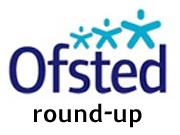Ofsted round-up – This week: Quay Assessment Training and Merton Council

Quay Assessment Training Limited, Kent
Summary of grades awarded:
Effectiveness of provision Good: Grade 2
Capacity to improve Satisfactory: Grade 3
Achievement and standards Good: Grade 2
Quality of provision Good: Grade 2
Leadership and management Satisfactory: Grade 3
Equality of opportunity Contributory grade:Good: Grade 2
Sector subject area:
Health and social care Good: Grade 2
Quay Assessment Training Limited (Quay) is a private training provider based in Sidcup, Kent. It was established in 1999 to provide training in health and social care for adults. Quay’s staff carry out most training and assessment in the workplace. Assessor meetings and learning sessions take place at the Sidcup office. Quay has held a direct contract for Train to Gain with London West LSC since 2007. Quay has 21 learners on its Train to Gain training programmes of which 19 are working towards National Vocational Qualification (NVQ) in health and social care. Quay has already achieved its contracted number of starts for the current year and is unable to recruit new learners until the beginning of 2009/10 contract year.
Ofsted has found that the overall effectiveness of the provision is good and that Quay has a satisfactory capacity to improve. Quay has a strong mission to broaden access to social care professions and works closely with employers to achieve high success rates and effectively support learners to progress onto higher NVQ programmes, further education courses and to secure promotion at work.
Quality assurance and self-assessment reporting are satisfactory. However, the company’s quality improvement procedures are incomplete. The company’s observation of training scheme does not focus sufficiently on grading the quality of learning and identifying good practice. Quality assurance activities have failed to identify areas for improvement such as progress reviews, individual learning plans and resources for learners. The report correctly identified most of the company’s key strengths and inspectors gave the same grades as those in the self-assessment report for achievement and standards, quality of provision, equality of opportunity and for provision in health and care. Key strengths include high overall success rates, good development of learners’ workplace skills, good assessment practice, good approach to meeting employer needs, good management of change and good partnership working to promote training in social care.
Achievements and standards are good – as recognised in the self-assessment report. Overall success rates on the NVQ in health and care are also high at 83% and timely success rates are good at 75%. Differences in overall and timely success rates between Levels 2 and 3 are small. Success rates on recently introduced programmes Skills For Life and Road Passenger Transport are very high at 100%.
The London Borough of Merton, London
Summary of grades awarded:
Effectiveness of provision Good: Grade 2
Capacity to improve Good: Grade 2
Achievement and standards Satisfactory: Grade 3
Quality of provision Good: Grade 2
Leadership and management Good: Grade 2
Equality of opportunity Contributory grade: Good: Grade 2
Sector subject area:
Preparation for life and work Good: Grade 2
The London Borough of Merton (The Council) has had a contract with the Department for Work and Pensions (DWP) for Workstep provision since 2001. The current group of 13 participants are mature adults with a learning disability and some have additional physical and sensory disabilities. The council employs all participants and all learners carry out a range of supervised unskilled and semi-skilled duties.
Ofsted has found that the overall effectiveness of the provision is good with participants developing good personal skills, increased confidence, self-awareness and work related skills, but progress into unsupported employment has been slow. The council demonstrates a good capacity to improve and shows a clear and effective post-inspection action and development plan that has brought about considerable improvement since the previous inspection. A clear action plan is in place to deal with participants’ slow progress into unsupported employment.
Self-assessment is good and its process is inclusive and good use is made of participants’, partners’ and staff views to improve provision. The self-assessment report is searching and accurate in its identification of strengths and areas for improvement in the programme. Most of the strengths and areas for improvement in the report match those identified by inspectors. Ofsted has found that very good progress has been made in improving provision since the previous inspection, when provision was inadequate with no key strengths. Key strengths now include good improvements in personal and work-related skills, particularly effective arrangements for developing participants’ skills, effective measures to review participants’ progress and good work-related and personal support for participants.
Achievements and standards are satisfactory, with all participants having learning disabilities and having worked for the council for many years. Since the previous inspection, participants have made good improvements in their personal and work-related skills. Communication has improved and they now use more appropriate language at work.
Natalie Hailes






Responses